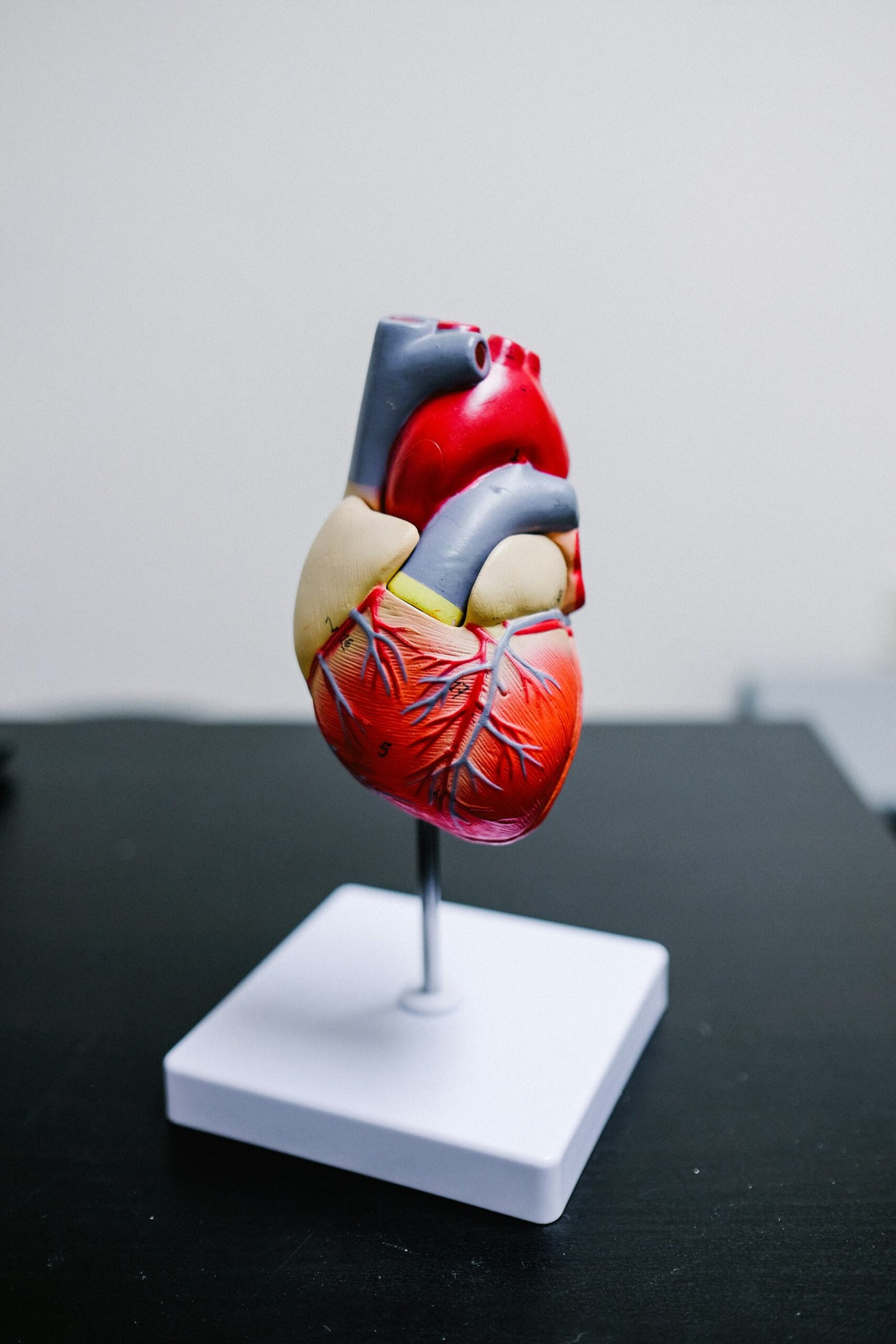
Introduction to Cholesterol: The Good, the Bad, and the Ugly
Maintaining healthy cholesterol levels is essential for overall cardiovascular health. When LDL levels become elevated, they can contribute to the formation of arterial plaque, a condition known as atherosclerosis. This buildup of plaque can restrict blood flow, leading to serious complications. Elevated cholesterol levels are often asymptomatic, meaning many people are unaware they have a problem until it manifests as a more severe condition. Therefore, regular monitoring and management of cholesterol levels are critical in preventing long-term health issues.
The potential consequences of high cholesterol are severe and far-reaching. A stroke occurs when the blood supply to part of your brain is interrupted or reduced, depriving brain tissue of oxygen and nutrients. Similarly, a heart attack happens when the flow of blood to a section of the heart muscle becomes blocked. Both conditions are leading causes of death globally and are often linked to high levels of LDL cholesterol. Understanding the factors that contribute to elevated cholesterol levels is vital in mitigating these risks. This discussion will focus on a specific ingredient that has been identified as a significant contributor to high cholesterol, stroke, and heart attack.
The Dangerous Ingredient: Identifying the Culprit
Recent studies have identified trans fats as a significant contributor to high cholesterol, stroke, and heart attacks. Trans fats, also known as trans fatty acids, are a type of unsaturated fat that has been chemically altered through a process called hydrogenation. This process involves adding hydrogen to liquid vegetable oils to make them more solid, thereby increasing their shelf life and improving the texture of food products.
Trans fats are commonly found in a variety of processed foods, including baked goods, fried foods, snack foods, and margarine. Historically, the food industry has favored the use of trans fats due to their cost-effectiveness and the enhanced flavor and texture they provide. Products such as cookies, crackers, doughnuts, and even microwave popcorn often contain trans fats, making them a ubiquitous component of many people’s diets.
The popularity of trans fats in the food industry surged in the mid-20th century when they were considered a healthier alternative to saturated fats. However, mounting scientific evidence over the past few decades has revealed the significant health risks associated with their consumption. Studies have shown that trans fats not only raise levels of low-density lipoprotein (LDL) cholesterol—commonly known as “bad” cholesterol—but also lower levels of high-density lipoprotein (HDL) cholesterol, or “good” cholesterol. Elevated LDL cholesterol levels are a well-known risk factor for cardiovascular diseases, including stroke and heart attacks.
Scientific research has consistently demonstrated the detrimental effects of trans fats on cardiovascular health. For instance, a landmark study published in the “New England Journal of Medicine” highlighted a clear association between trans fat intake and an increased risk of coronary heart disease. Further studies have corroborated these findings, establishing a strong link between trans fats and various cardiovascular problems.
Understanding the risks associated with trans fats is crucial for making informed dietary choices. By identifying and minimizing the intake of foods high in trans fats, individuals can take proactive steps to protect their cardiovascular health and reduce the likelihood of developing serious conditions such as high cholesterol, stroke, and heart attacks.
The Impact of Trans Fats on Your Health
Trans fats, often found in processed foods, pose significant health risks by adversely affecting cholesterol levels. These artificially engineered fats increase low-density lipoprotein (LDL), commonly known as “bad” cholesterol, while simultaneously reducing high-density lipoprotein (HDL), or “good” cholesterol. Elevated LDL levels contribute to the buildup of plaque in arteries, a condition known as atherosclerosis. This buildup narrows and hardens the arteries, making it more difficult for blood to flow and increasing the risk of heart disease and stroke.
Numerous studies have underscored the harmful effects of trans fats on cardiovascular health. Research published in the “New England Journal of Medicine” revealed that a diet high in trans fats could increase the risk of heart disease by 23%. Another study by the American Heart Association found that even a small increase in trans fat intake was associated with a significant rise in the incidence of cardiovascular events, including heart attacks and strokes.
The prevalence of trans fat consumption is alarming. According to the World Health Organization, trans fats are responsible for over 500,000 deaths annually due to coronary heart disease. These statistics highlight the urgent need for public awareness and regulatory measures to reduce trans fat intake globally. Many countries have already taken steps to limit or ban trans fats in food products, but consumption remains high in regions where regulations are less stringent.
The short-term effects of consuming trans fats include elevated cholesterol levels and increased inflammation, which can lead to immediate cardiovascular stress. Long-term consumption, however, poses even greater dangers. Chronic intake of trans fats is linked to a higher risk of developing type 2 diabetes, metabolic syndrome, and, most critically, chronic heart diseases.
Understanding the impact of trans fats on your health is essential for making informed dietary choices. By reducing or eliminating trans fats from your diet, you can significantly lower your risk of cardiovascular diseases and improve both short-term and long-term health outcomes.
How to Avoid Trans Fats and Improve Heart Health
Reducing trans fats in your diet is crucial to better heart health. Trans fats, often found in processed and fried foods, can significantly increase cholesterol levels, leading to a higher risk of heart disease and stroke. Here are some practical steps to help you eliminate or reduce trans fats and improve your overall heart health.
Firstly, develop the habit of reading food labels carefully. Look for phrases like “partially hydrogenated oils” or “hydrogenated fats” on ingredient lists, as these indicate the presence of trans fats. Even if the label states “0 grams of trans fat,” it’s important to note that products can still contain up to 0.5 grams per serving. Opt for foods labeled “trans-fat-free” or healthier oils, such as olive or canola oil.
Recognizing hidden sources of trans fats is also essential. Trans fats are commonly found in baked goods, margarine, microwave popcorn, and fast food. Choose healthier alternatives like whole grains, fresh fruits, vegetables, and lean meats. When dining out, inquire about the oils used in food preparation and opt for grilled, baked, or steamed dishes instead of fried options.
Incorporating dietary changes can make a significant impact. Increase your intake of omega-3 fatty acids found in salmon, flaxseeds, and walnuts, as they can help reduce bad cholesterol levels. Additionally, include more soluble fiber in your diet from foods such as oats, beans, and apples, which can also aid in lowering cholesterol.
Aside from dietary adjustments, adopting a healthier lifestyle is vital. Regular exercise, maintaining a healthy weight, and quitting smoking can all contribute to improved heart health. Furthermore, regular medical check-ups and cholesterol screenings are imperative to monitor your heart health and make necessary adjustments.
Take proactive steps now to protect your heart. By making informed choices and prioritizing a heart-healthy lifestyle, you can significantly reduce your risk of high cholesterol, stroke, and heart attack. Your heart will thank you for it.
